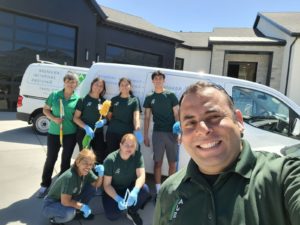Washington,DC(RushPRnews)10/24/08–Both sides in the election fraud scandal sweeping this year’s presidential election have stepped up their charges against each other, with Republicans calling the grassroots civil rights group ACORN Communist and liberals such as Robert F. Kennedy Jr. accusing the GOP of systematically removing registered Democrats from the election rolls.
A spokesman for ACORN, the Association of Community Activist For Reform Now, told RushPRnews that accusations of voter fraud against the organization are nothing more than a carefully orchestrated attempt by the Republican Party to disqualify the 1.3 million people it registered to vote.
Charles Jackson, ACORN communications director, said most of the accusations that the group
improperly signed up some people came out only after it announced it had registered more than a
million people to vote.
“After we announced we had registered 1.3 million people to vote, that’s when the gates of hell
opened up and the attacks began,†he told RushPRnews.
Meanwhile, an official with the conservative watchdog group Capital Research Center told RushPRnews that ACORN a is a “communist-like organization with ties to the radical left wing prominent in the 1960s.”
“ACORN is not about just getting people to vote,†said Matthew Vadum, Senior Editor with the Washington, D.C.-based Capital Research Center. “It’s profoundly anti-capitalist and opposes a lot of the institutions in American society that people take for granted.â€
The divergent views come in the waning days of a heated presidential race in which a black man,
Democrat Barack Obama, for the first time is the nominee from a major party. His opponent, Republican John McCain is running on a ticket that includes a woman, Alaska Gov. Sarah Palin.
In recent weeks ACORN has been besieged by allegations of improper ties to Obama and for
registering non-existent people to vote in key swing states.
ACORN is a nationwide organization that reaches out to low and moderate income people, minorities
and disenfranchised groups that typically vote for democrats. With 400,000 family members, it is the
largest grassroots organization focused on low and moderate income people in the nation, according
to its web site, acorn.org.
In speeches and in his final debate with Obama, McCain charged that ACORN may be on the verge of
“perpetrating one of the greatest frauds in voter history in this country.â€
While Jackson acknowledged that some of the registration cards it turned in were suspicious, ACORN
officials were the first to catch the irregularities and to bring them to the attention of elections officials. The number of improper registration cards may number in the thousands, Jackson said, but it is a small fraction of the total number of valid ones.
“Republicans see this as a way to stop eligible voters from voting,†he said.
Vadum accused ACORN of being a radical group with a so-called “People’s Platform†that reads like a
“Communist manifesto for the nation’s community organizers.â€
He said that platform includes the statement, “Enough is enough. We will no longer wait for the
crumbs at America’s door.â€
“This not the language of a moderate, community-spirited organization,†Vadum said. “It’s the language
of a radical group that wants revolutionary change.â€
Meanwhile, some democrats, most notably election law attorney Robert F. Kennedy Jr., charged that
the Republican Party has systematically prevented countless numbers of people from voting since
2004.
In an article in Rolling Stone magazine called “Block the Vote,†Kennedy and writer Greg Palast detailed
several instances in which people who were legally registered to vote in several key swing states
found that their names had been removed from voter registration lists.
Among those cited was Paul Maez, a school bus driver from Las Vegas, New Mexico, who discovered
on Feb. 5, the day of Super Tuesday caucus, that his name was not on the list of registered voters.
Maez was given a provisional ballot to fill out. Ironically, Maez is the supervisor of elections in that tiny
community of mostly low income voters.
In New Mexico this year, one in nine Democrats who tried to vote found that their names had been
removed from the registration lists, according to Kennedy and Palast. Unable to vote in the traditional
way, they were, like Maez, given “provisional ballots,†which can be reviewed and discarded by
elections officials without explanation, according to Kennedy and Palast.
The number was higher in Colorado, where one in six names was removed from the rolls between
2004 and 2006, Kennedy and Palast wrote.
“A little known secret of American democracy is that in 2004 there were 3 million votes cast, and they
were never counted,†Palast said in a “Behind the Story†video accompanying the Rolling Stone article
online. “Three million votes – just pfft. What happened?â€
Kennedy and Palast attribute the trouble to a 2002 federal law, the Help America Vote Act, or HAVA,
which requires states to check voter registration applications against government databases like those
for driver’s license records. Names that do not match must be flagged and a provisional ballot issued
when the elector arrives to vote.
On the surface, the goal of the legislation seems to be a noble one: to prevent the same person from
registering more than once and to ensure convicted felons don’t vote. Yet it has turned into
something more than that.
Kennedy called it a way to prevent democrats from voting, since the vast majority of people being
dropped from the voter registration rolls are Hispanics, blacks and Native Americans, people who
typically vote for democrats.
“After the most catastrophic presidency in the history of the United States, a lot of Europeans wonder,
‘Why are Americans so crazy? They keep electing this guy,†Kennedy said, referring to President Bush.
“Well, the answer is, ‘We don’t.’â€
If this year’s race is as close as the past two elections, the GOP’s nationwide campaign could be large
enough to determine the presidency in November, Kennedy and Palast wrote.
They urge voters to follow these rules when they vote: Always vote in person, not by mail; vote
before election day, as many counties now allow this; ensure you are registered by reviewing the
website www.votersunite.org/info/RegInfo.asp; don’t accept a provisional ballot without requesting
adjudication from poll judges on the spot or demanding a call to the supervisor of elections; arrive at
the polling place as part of a group of two or more.




